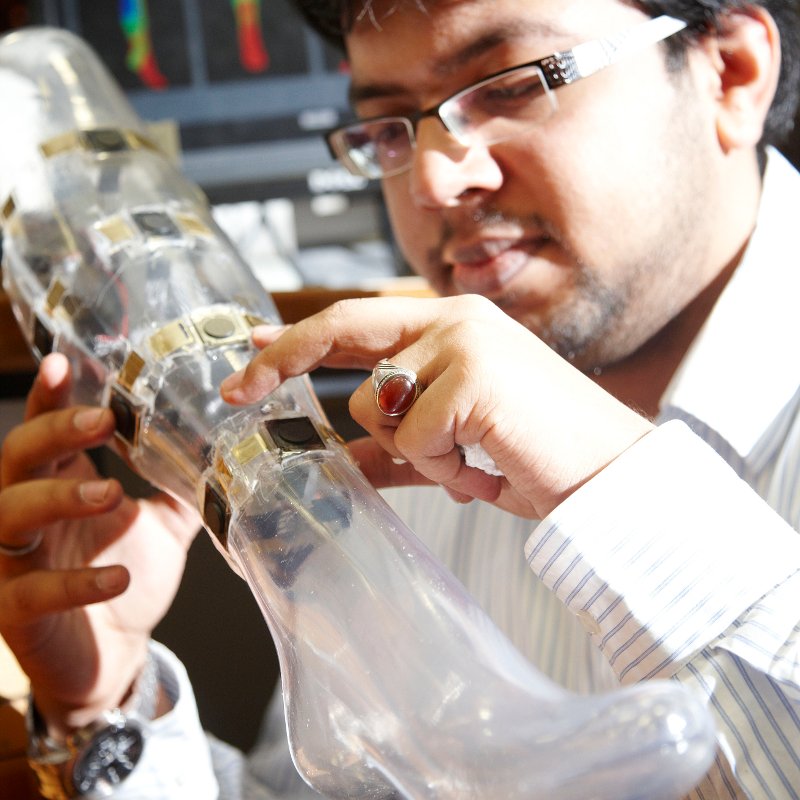Smart BioLeg

Research lead
Dr Abbas Dehghani
Project Overview
A smart biomimetic, self-tuning, fully adaptable lower limb prosthetics with energy recovery
Every year, thousands of people lose a lower limb as a result of factors such as circulatory problems, complications associated with diabetes or trauma. Current lower limb prostheses can be divided into three groups
- Purely passive mechanical prostheses requiring a significant voluntary control effort;
- Actively controlled prostheses in which the limb performance is measured and parameters altered to improve performance;
- Actively driven, or powered prostheses using actuators to directly input mechanical work into the limb.
The latter devices do not however take into consideration the dynamic interaction between the body elements and prostheses. As a result, they require large amounts of energy and are of low efficiency. Therefore they are not in harmony and synergy with the human body. Hence, there is a need for a new generation of lower limb prostheses which can mimic the human muscle by combining active and passive modes.
This new generation of prostheses should have a plug and play characteristic and the limb would self-tune to the current walking situation (level, slopes and stairs) to optimise the system performance for the user. During the walking cycle, the artificial limb will switch between delivering energy to the walking motion to harvesting energy during the swing phase; reducing the burden on the batteries.
The aim of this project is thus to design and develop a new smart lower limb prosthesis with the outcome of the research being a step change in the use of technology in relation to human-machine dynamic interaction.
The research outcomes will address a number of healthcare challenges associated with the restoration of mobility in amputees, and pave the way for a new direction in the design and development of devices to support mobility. The world’s third largest manufacture of prosthetics is in the UK and this research will enhance the UK’s position worldwide by providing enhanced opportunities for commercialisation.
